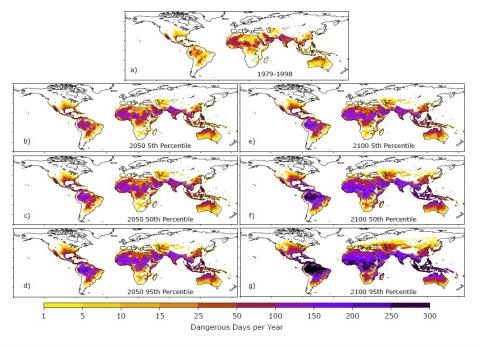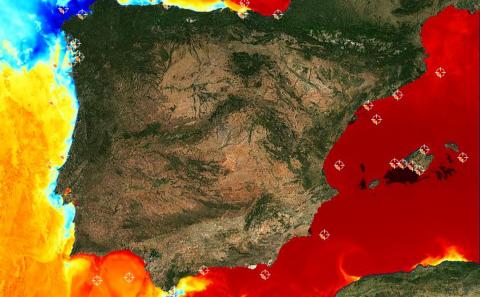Reaction: Heatwaves due to climate change have cost the global economy billions since the 1990s
A study published in Science Advances estimates that economic losses due to heatwaves caused by climate change between 1992 and 2013 exceeded $5 trillion. Moreover, lower-income countries were more affected than richer regions.

Ernesto Rodríguez - calor dinero
Ernesto Rodríguez Camino
Senior State Meteorologist and president of Spanish Meteorological Association
Current anthropogenic climate change has among its main effects an increase in extreme weather and climate events, in particular extreme heat events. While these extreme heat events have been relatively well characterised by both observations and numerical modelling, their economic effects are less well understood. The authors of this paper estimate the cumulative losses in global GDP for the period 1992-2013 due to the effects of extreme heat events attributable to climate change.
They conclude that there is a marked difference in economic losses between regions with lower and higher GDP, demonstrating that the effects of climate change impact very unevenly between rich and poor countries. These effects are particularly acute in the poorest and warmest regions of the planet, which are mainly located in the tropics and are at serious risk of crossing the physiological temperature and humidity threshold for human morbidity and mortality. The paper highlights the amplifying effect of extreme heat events on inequality between countries, disproportionately harming countries with lower GDP and thereby increasing inequality between countries with higher and lower GDP.
The main limitations of the paper are associated with the scarcity of economic data for the warmest and lowest GDP regions, which forces the authors to overcome this shortcoming with estimated and modelled economic data for certain areas. Furthermore, the work has also focused on the intensity of extreme heat episodes and not on other very relevant aspects such as their frequency and duration, which also have a very negative impact on the population with very appreciable economic consequences. In any case, it constitutes an appreciable contribution to the estimation of the global economic consequences of extreme heat to which, let us not forget, we should add the rest of the negative effects of climate change, such as a greater frequency of intense rainfall, droughts, rising sea levels, etc.
Christopher W. Callahan et al.
- Research article
- Peer reviewed
- Modelling



